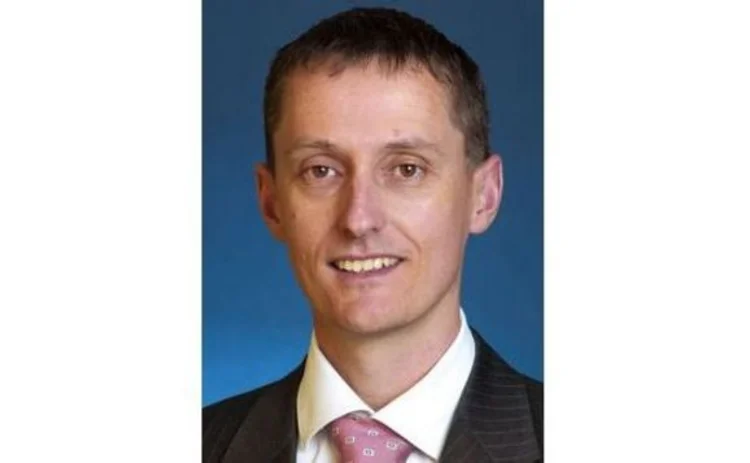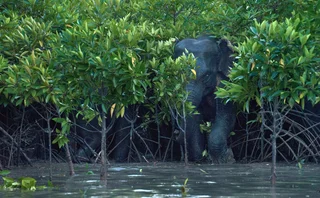Base Metals House of the Year, Asia – Deutsche Bank
Base Metals House of the Year, Asia – Deutsche Bank

Although present in the region for the past decade, Deutsche Bank has particularly pushed its Asian capabilities over the past three years developing its derivatives and physical commodities' business. Significant hires have been added to its metals' team, which has increased threefold in size as a result. Its main base in the region is Singapore, but the bank also actively trades from its offices in Sydney, Hong Kong and Shanghai.
"After the financial crisis, there's been a huge request for working capital and financing requirements in Asia, and especially in China as the dominant consumer of metals," says Ray Key, head of base metals for Deutsche Bank. "There's been an increased demand for hedging and managing the risk involved with financing their metals business," he adds.
As one of the first banks to venture into the steel sector, the bank's alliance with global steel trading giant Stemcor, completed in March 2009, was a real turning point for the investment bank's progress in this sector.
"We wanted to team up with someone that had an extensive physical presence," says Key. "As a result, we've now collaboratively been able to start linking London Metal Exchange (LME) Asia steel contracts to enhance steel mills' financing arrangements."
The investment bank has also taken substantial steps in the iron ore sector in recent years. In May 2008 Deutsche Bank teamed up with Credit Suisse to launch the first ever iron ore derivative trade, a new market that has taken off over the past two years. The beginning of 2010 saw the global benchmark for iron ore prices abandoned, spurring further demand for risk management tools.
"This is a new dilemma that the steel industry is struggling to cope with. For the past 50 years they haven't had to worry, but now they have to use derivatives to manage their risk," says Key. "In addition to that, we're now doing similar working capital financing on physical iron ore cargoes that are moving from places like India, Australia and Brazil into Asia," he says.
Key says the effects of the financial crisis have prompted demand for working capital and financing capabilities in Asia, particularly in China and other emerging countries in the region. "We've been able to help consumers not only hedge and manage their risk, but also finance their cargoes from when they are sitting in the warehouses right through to when it gets transported into production facilities," he says.
Another opportunity Deutsche Bank has taken advantage of is offering short-term holding facilities to producers during times of huge swings in supply and demand for metals. The bank buys the product from the producer when demand is lacking, holds it indefinitely and then allows the client to then re-access its material when client demand accelerates again.
Deutsche Bank's base metals team has recently turned its attention to China: "We do a lot more business focusing on China – often leveraging our physical trading capabilities – whether its copper, aluminium, zinc and tin around the region when there is demand by clients to access the material," says Key.
Working within emerging Asian markets comes with a new set of challenges, however, says Key.
"There are number of challenges - people do not appreciate how vast Asia is both geographically and in terms of regulatory environments that you have to contend with. You've really got to have the right balance of skills in your team, because there's a whole range of different issues that you need to be an expert in. Deutsche Bank has a a significant number of people on the ground in most Asian countries, which is essential in Asia because regulation is such a challenge."
Click here to view the article in PDF format.
More on Awards
Environmental products house of the year: ENGIE
Energy giant signs raft of forward-thinking environmental deals in Apac
Newcomer of the year: Marex
Commodities and financial services firm expands rapidly across Apac region, entering multiple new markets
Voluntary carbon markets house of the year: Marex
Marex’s support of mangrove projects provides high-quality credits for clients and socio-economic benefits for local communities
OTC trading platform of the year: Marex
Marex’s Agile platform registers impressive volume and client growth in Asia
Technology advisory firm of the year: KWA Analytics
With a focus on strategy and scalability, KWA Analytics improves clients’ operations in Japanese power, biofuels and certificates
Commodities technology house of the year: Topaz Technology
Strong revenue growth, Asia focus and a unique approach to unifying physical and financial risk
Electricity house of the year: Provincial Electricity Authority (PEA)
Power company uses renewables to help Thailand attract energy-intensive manufacturers amid recent geopolitical shifts
Energy Risk Asia Awards 2025: the winners
Winning firms showcase the value of prudent risk management amid challenging market conditions







